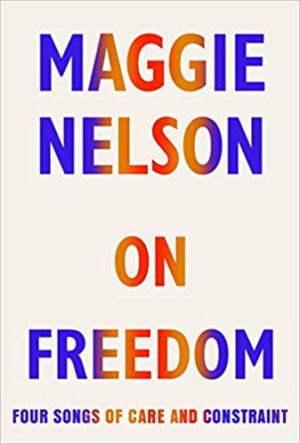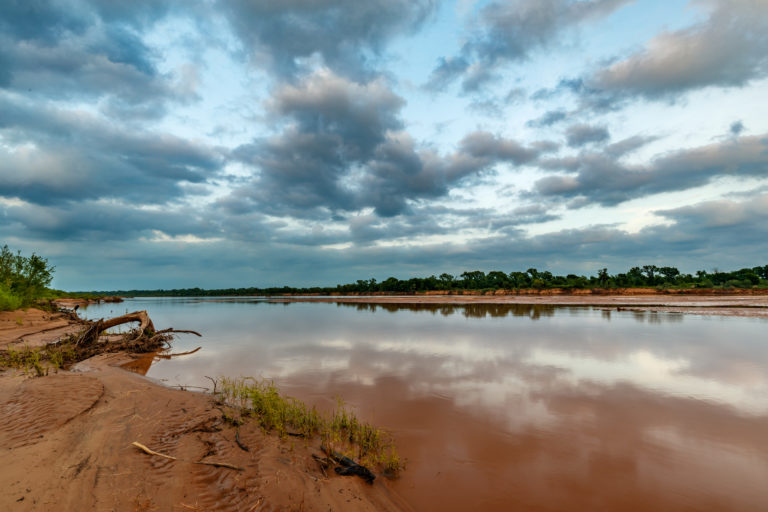You have no items in your cart. Want to get some nice things?
Go shopping
I confess: When Maggie Nelson’s latest work of criticism dropped through the letterbox, I reacted less than positively. I shuddered, actually.
There were two reasons for this.
Firstly, the title. On Freedom – if we are to speak of the title alone – struck me as a flirtation with the tone of those trenchant political manifestos or memoirs, ones that posit single-minded solutions to society’s shortcomings, with little patience for the other side of the debate. (I don’t know, maybe I was being presumptuous, but I operate from the gut a lot of the time, and the title’s loose assertiveness just struck me that way.)
Secondly, the concept of “freedom” itself. As a word, it is vague and ambiguous. As an ideal, it is tragically dislocated, meaning different things to people from different walks of life. How can one approach such a vast chasm of a topic in a way that is meaningful to more than just a narrow wedge of society?
Of course, I should have had more faith in Maggie Nelson’s ability and approach. By the time I’d finished combing through the introduction – which sets the tone for the rest of the book by positing that the border between possessing freedom and acting as though one is free is blurred, if not utterly illusory – I would find myself begging her forgiveness, at least in spirit. I should have known that, in Nelson’s hands, a concept such as freedom (or cruelty, or family) will inevitably take on new and unique colour.
The writer’s tremendous back catalogue is littered with works that can only be described using another barbed and baggy term – genius. (Perhaps we can be forgiven for using the overweighted appellative; she did, after all, become a MacArthur fellow, receiving the so-called genius grant, in 2016.) But where much of her other work acts as memoir/critical crossover, or “autotheory” as Nelson herself has coined the form (see Jane: A Murder, Bluets, and The Argonauts), her latest outing does much less of the former, being more of a straight-up collection of stand-alone essays (see The Art of Cruelty and Women, the New York School, and Other True Abstractions.) These essays are, however, no less relatable. As all of her readers will know by now, there is something about her style of delivery that is entertaining, enervating, and earth-shattering all at the same time.
Approaching the topic like any philosopher worth her salt (i.e., methodically as hell), she splits freedom up into four of its many incarnations, with a chapter for each. The first, titled “Art Song,” examines artistic freedom. Here, Nelson deftly examines how ideas around cultural appropriation, cancel culture, and the “attention economy” encroach on an artist’s sense of license, and how bearing in mind the offense she might cause with her work, instead of being a constraining, limiting imposition on his right to freedom of speech, has the possibility of being “aesthetically or ethically illuminating.”
In “The Ballad of Sexual Optimism,” Nelson weaves together issues relating to the #MeToo movement, queerness, and consent, creating a rich critical tapestry exploring “thorny issues” around sexual freedom. It is here that she begins to hit her stride, demonstrating both her awareness of the wider and more complex social issues around, for example, “age of consent [or] polygamy [or] unwanted kisses or touches that ended as soon as the uninterested party said no,” as well as her radical compassion for people caught on all sides of the debate, where she decries those making “blanket calls for increased institutional intervention and/or sexual policing,” people who “don’t ever seem to imagine themselves on the wrong end of the stick” (e.g., having an allegation made against them).
Chapter three, “Drug Fugue,” picks through the vast spectrum of addiction literature, from its well-known exponents, such as Charles Bukowski and William Burroughs, to the more esoteric names in the genre (if it can be called a genre), such as Anna Kavan and Ellen Miller. Using her source material liberally and to great effect, Nelson considers the mutation of the freedom to do as one pleases (i.e., to take into one’s system whatever mind-altering substances one so chooses), to the slavery of what inevitably becomes a debilitating physical, mental, and spiritual illness.
The final chapter, “Riding the Blinds,” tackles perhaps the most pressing issue out of the collection: the climate crisis. It begins with a brief episode from the author’s life, in what becomes one of the few instances of “autotheory” in the book. In these opening chapters, Nelson gives us a depiction of her son’s obsession with trains, using their visit to Travel Town, “where unthinkably large locomotives have gone to rest,” and then uses this as a springboard to speak meaningfully about our overreliance on fossil fuels and our tendency to what Laurent Berlant calls “cruel optimism.” With her signature empathy, she discusses the tendency of some people to bury their head in the sand about the climate crisis, thus courting further the ruin of the human race.
On Freedom is, as ever, an example of Maggie Nelson’s fearlessness when navigating some of the most contentious issues of today. Her voice is one of grit and steel, yet also one of sensitivity and what is a compelling display of Pema Chodron’s radical compassion, which Nelson contemplates in “The Ballad of Sexual Optimism.” Despite the occasional backbiting remark – as when she calls into question Lionel Shriver’s “fragile sense of artistic freedom” – she mostly holds to this overarching empathy, a fact which enriches her ideas all the more, imbuing them with a humane quality which brings the collection down from the head and into the heart.
As a whole, these essays hold at their core Nelson’s deeply held conviction that we must “love all the misery and freedom of living and, as best we can, not mind dying.” The sentiment has all of the oxymoronic appeal of the word I was so dubious about when the book first fell into my hands. And yet despite its apparently contradictory nature, this form of freedom is, surely, the kind of freedom that is available to all. It is not the freedom of controlling what happens in the world, nor of punishing others for infringements upon our own individual sense of morality, but of altering how we respond to the way the world is now.
As such, there are no easy solutions to be found in this book. Nelson furnishes us with no less than the freedom to make our own choices – to act as though we are already free – in a world that is seemingly falling apart.
On Freedom: Four Songs of Care and Constraint
By Maggie Nelson
304 pages, Jonathan Cape
About Andrew Cochrane
Andy is a writer based in Southampton, where he lives with his wife and two daughters. He has an MA in Creative Writing, and has previous publications at The Fiction Desk, Litro, Words for the Wild and Postcard Shorts, among others. He is currently seeking an agent for his debut novel.




